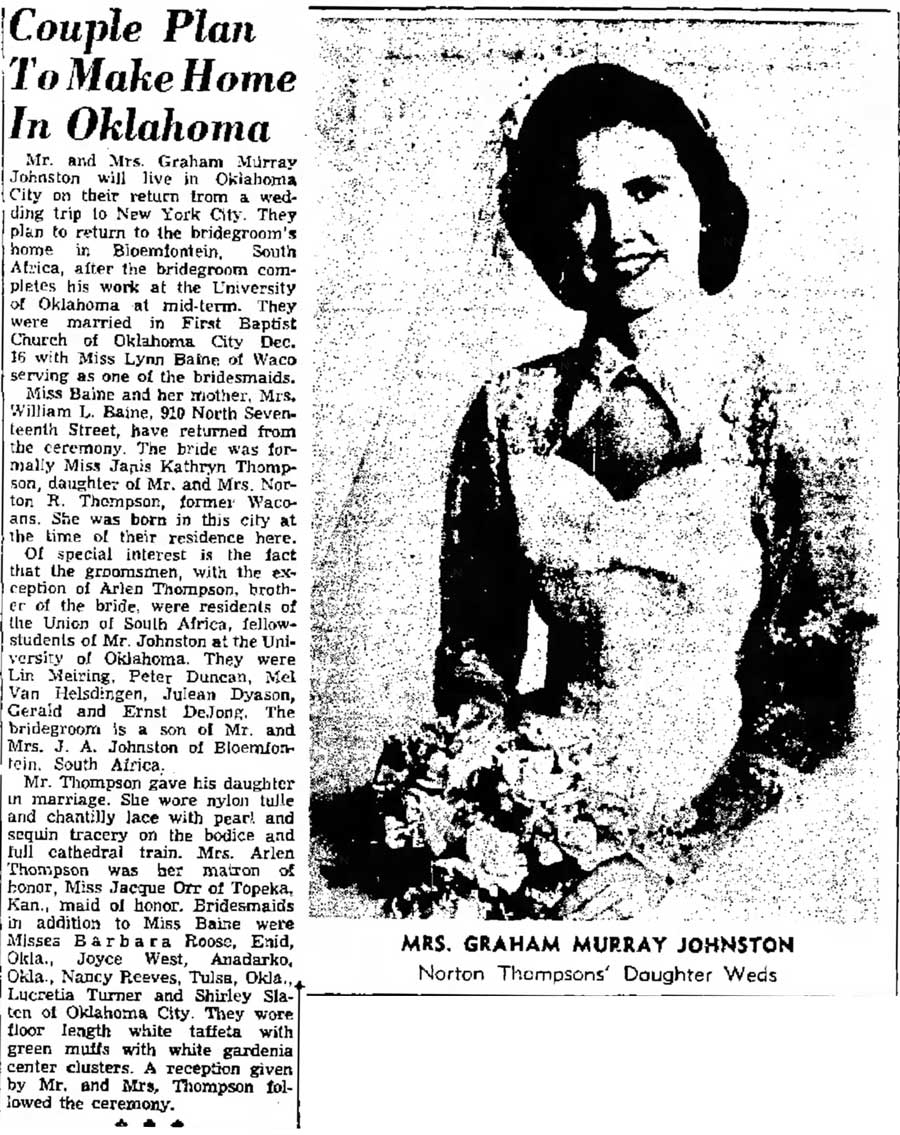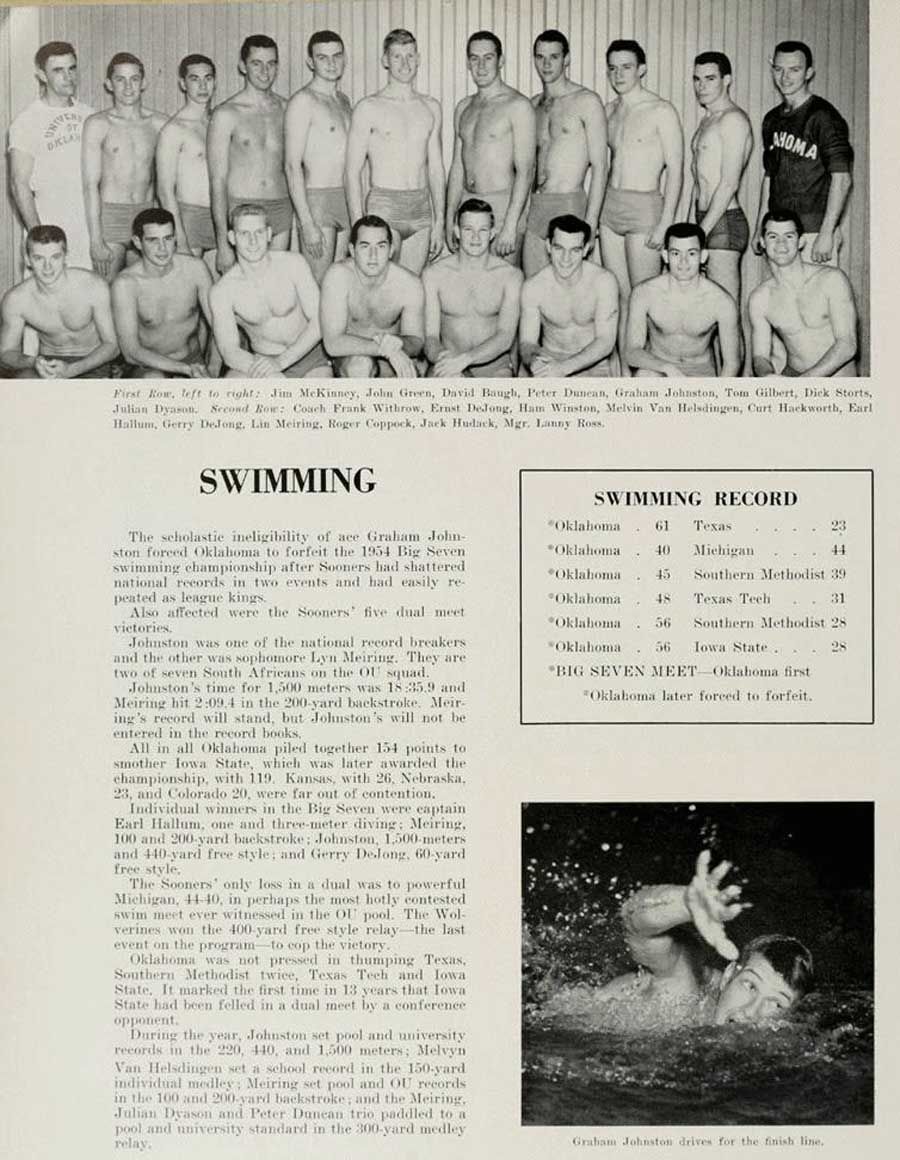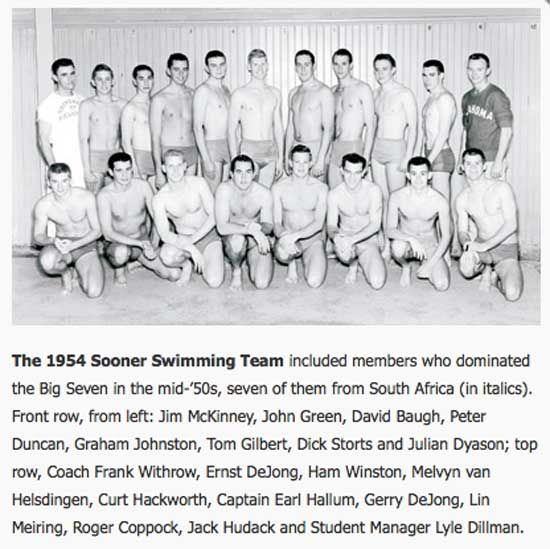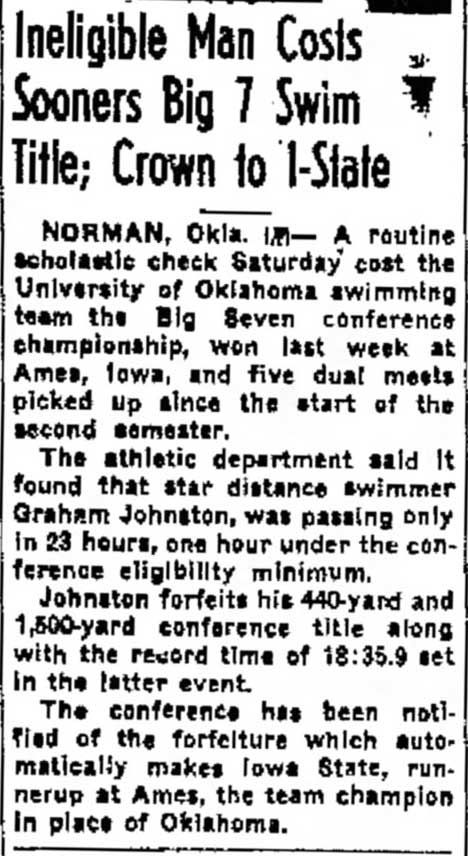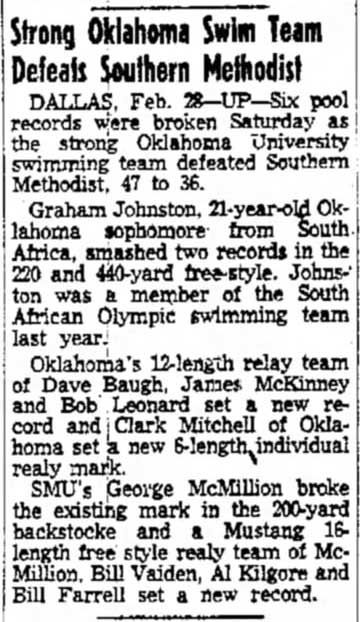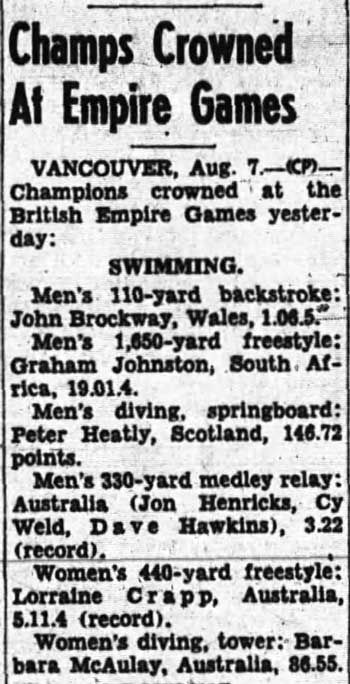Graham Johnston
Springbok, Olympian, Commonwealth Games gold medalist - and Masters swimming legend.
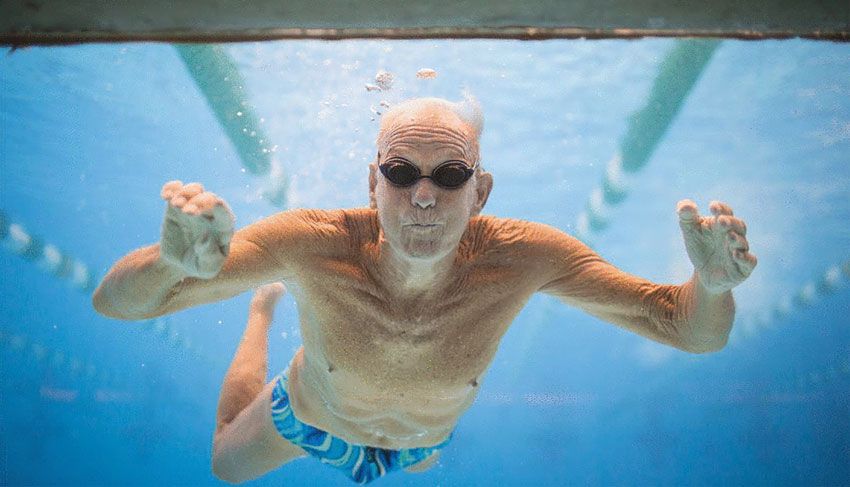
Graham Johnston (10 July 1930 - 27 July 2019) was as swimmer from Bloemfontein. He was inducted into the International Swimming Hall of Fame in 1998, the International Masters Swimming Hall of Fame in 2003, the Texas Swimming and Diving Hall of Fame in 2009, the National Senior Games Hall of Fame in 2011, and the Huntsman World Senior Games Hall of Fame in 2012.
Graham and his brother Donald Johnston attended Grey College and were coached by their father. Donald won three titles at the 1946 South African championships, and only in 1949 at Pietermaritzburg did Graham beat him at the South African Championships. They both set new SA records in the 220-yard freestyle heats - only for both to be beaten in the final by Les Klenerman. Graham won the 550 and 880 yards events.
He was awarded Springbok colours when he competed in the 1950 Empire Games held in Auckland, where he won the 1500 m freestyle. He repeated this feat at the 1954 Empire Games in Vancouver. He also competed at the 1952 Helsinki Olympics, swimming the 400 and 1500 freestyle, and 4x200 freestyle relay, where South Africa finished 7th.
In 1952 Graham was one of the first South African swimmers to win a scholarship to swim for an American University. He attended the University of Oklahoma, where he was a three-time All-American, graduating with a business degree in 1956.
Graham Johnston had the following podium finishes at major championships: 1st in the 1950 British Empire Games 1650 yards Freestyle, 1st in the 1954 British Empire and Commonwealth Games 1650 yards Freestyle, 2nd in the 1950 British Empire Games 440 yards Freestyle, 3rd in the 1954 British Empire and Commonwealth Games 440 yards Freestyle, 3rd in the 1954 British Empire and Commonwealth Games 4×220 yards Freestyle Relay (with Dennis Ford, Peter Duncan, and Billy Steuart).
The International Swimming Hall of Fame article on Graham states: Many say that Johnny Weissmuller was the greatest swimmer who ever lived. He set records that stood for dozens of years. Today we have a man who has been setting records for dozens of years. He holds Masters Age Group records from 100 meters to 1500 meters as well as many open water world records. When he sets records, he doesn't do it by a tenth of a second or even by as much as a second or two; he does it by minutes.
Graham Johnston died in Houston on 27th July 2019.
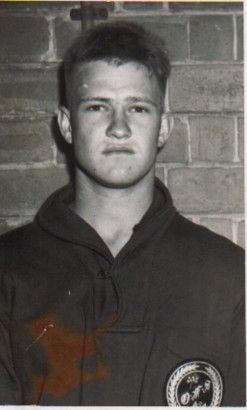
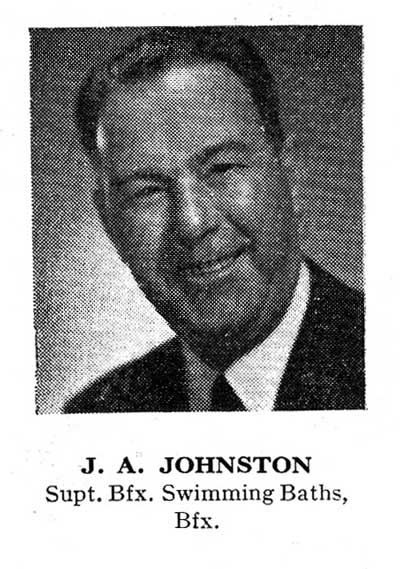
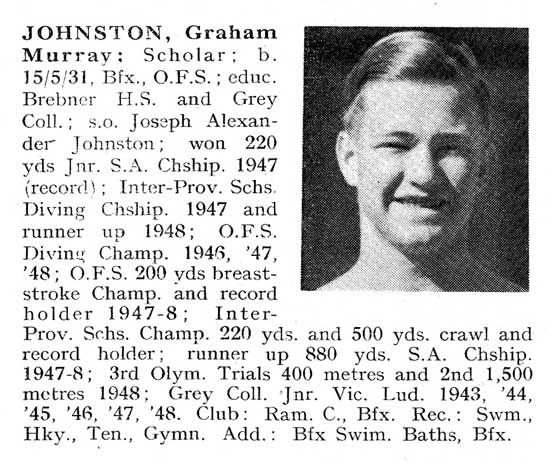
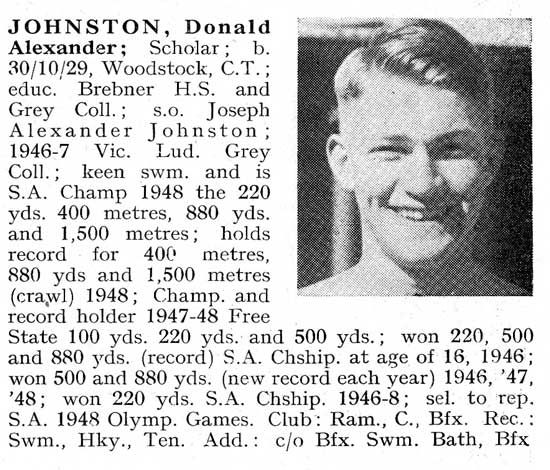
Wikipedia: Graham M. Johnston (born 10 July 1930 in Bloemfontein) was a South African swimmer who competed in the 1952 Summer Olympics. Johnston graduated from the University of Oklahoma and has lived in the United States of America since 1958. He met his wife-to-be, Janis in 1952. The two married in 1955 and have five children. His father, a municipal pool manager, taught him to swim before the age of one. He also tried other athletic endeavors, lettering in five sports during his high school years. But the water was his true love and he achieved national success during high school with the following championships:
South African National Junior Diving Champion 1946, 1947, 1948, South African National Junior Swimming Champion 1946, 1947, 1948, South African National Senior Swimming Champion 1948, 1949, 1950. Johnston won two gold and two silver medals in each of the 1950 and 1954 Commonwealth Games held in New Zealand and Canada, as Queen Elizabeth watched in Vancouver, Graham won a second Games gold medal in the 1650 freestyle, breaking the Empire Games record by 45 seconds. He also won a bronze medal in the 440-yard freestyle.
In 1952 he was selected to represent South Africa in the Olympic Games held in Helsinki. Johnston was one of the first foreign-born athletes to enjoy a full scholarship at an American college. He received a full scholarship for swimming at the University of Oklahoma where he achieved NCAA All-American status three consecutive years. Johnston retired from competitive swimming between 1956 and 1972.
In 1973, at the age of 41 he returned to the sport and swam in his first Masters nationals in Santa Monica, California. In addition to Johnston's world records in short and long course, he holds six national short course records and seven national long course records. He also holds all national freestyle records in the distances ranging from 100 yards through 10K in the 65 to 70 age group. He has won the Waikiki Rough Water Swim eight years in a row (1993-2000). And he is the only person to hold all seven USMS national long distance records in any age group. In 1998 he was inducted into the International Swimming Hall of Fame. At age 69 his 1650 yd. national record was just five seconds slower than the time that won him the gold medal at the Commonwealth Games in 1950. Johnston won gold in the 200-meter free, 400-meter free, 800-meter free, the 400-meter IM and the 5k open water swim (in 67 degree water) at the World Masters Swimming Championship in Munich, Germany.
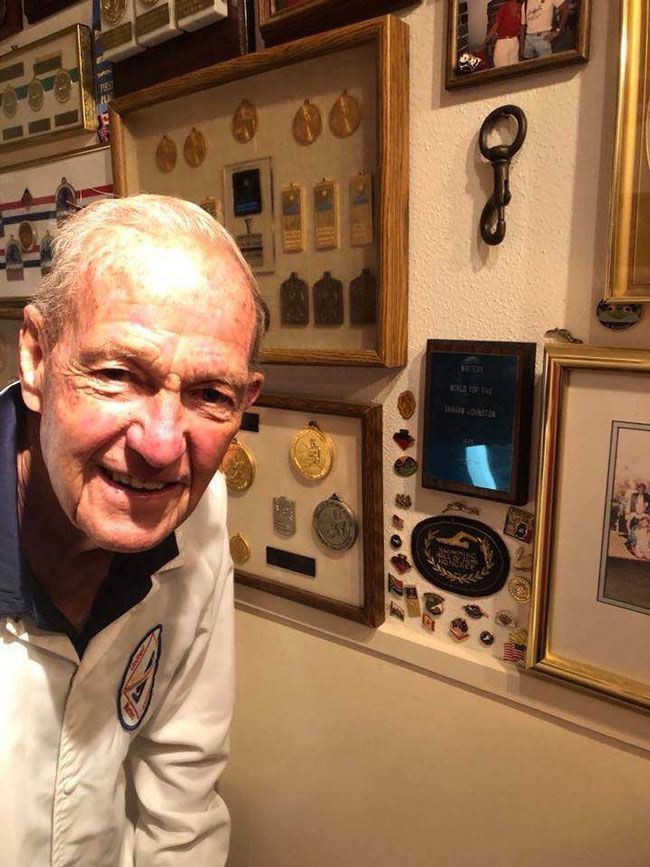
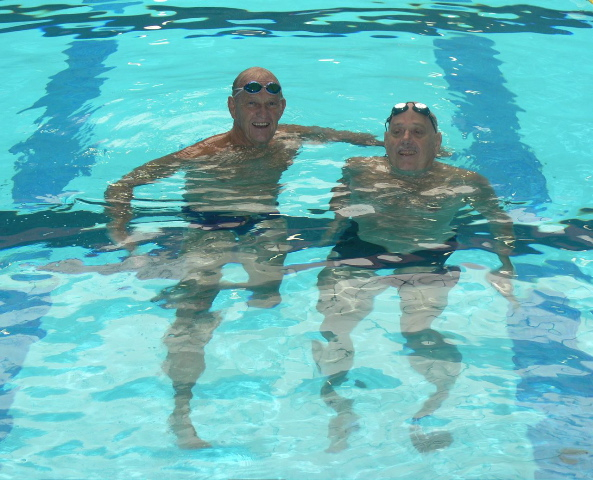
Graham Johnston's Competitive Edge Keeps Him Swimming
HOUSTON, Texas, July 11. GRAHAM Johnston didn't reach his goal of breaking the Masters world record in the 1500 freestyle last week at the United States Masters Swimming long course nationals, but he's lucky he got the chance to race at all.
After a 400 IM race five months ago, he felt shortness of breath and pain in his chest -- more intense than the usual sensations after completing one of the most grueling swimming events. Doctors discovered a blocked aorta in his heart and promptly inserted a stent to keep blood pumping regularly.
Johnston, 81, was able to get back in the pool and train for nationals shortly thereafter. In addition to the 1500, Johnston won five more individual events last weekend and helped the Masters of South Texas win one relay and place second in two others. It was one of the few championship meets in which Johnston did not break a national or world record, finishing a minute slower than Divano Giulio's world record of 24:40.69 in the mile.
"I'm happy that I can still get into the pool and train at the top level," he said, "and I enjoy swimming so much that I don't want to give it up."
Johnston's swimming history begins in Bloemfontein, South Africa, where as a teenager he made good on his dream to continue his swimming career in the United States. After selling his belongings and accepting some money from his mother, he crossed the Atlantic Ocean and became the first South African swimmer to compete for an American university, earning All-America honors for the University of Oklahoma from 1951 to 1955.
Johnston's time at Oklahoma helped get him a spot on the South African Olympic team for the 1952 Games in Helsinki, where he competed in the 400 and 1500 freestyles, as well as the 800 free relay. After competing at the highest level of the sport, Johnston quit swimming at 22 years old. Masters swimming wouldn't be conceived for another 17 years, so Johnston and his wife Janis went to South Africa, where Graham sold mining equipment. After two years, the Johnstons returned to the United States. Johnston made a lucrative career selling heavy equipment to miners and farmers all over the country before settling in Houston.
Johnston was invited to a Masters swimming competition shortly after the organization was founded in 1972, but he refused. The bug bit him in 1973, and Johnston made his Masters swimming debut at the 1973 nationals in Santa Monica, where he was summarily defeated by Bumpy Jones, who would become a friend and rival.
"I have a great ego and I'm competitive in just about anything I do," Johnston said. "I was confident I could win (at Santa Monica), but in the first two races I was whipped down to third place."
From that moment on, Johnston was on his way to becoming a Masters legend. Throughout his career as a Masters swimmer, he has broken nearly 90 Masters world records across seven age groups. Eight of those records still stand in the 70-74 and 80-84 age groups. He was inducted into the International Masters Swimming Hall of Fame in 1998.
He's made a name for himself in open water venues as well, becoming one of the oldest swimmers to traverse the Strait of Gibraltar at age 74 and the first man over 70 years old to complete the 3.5-mile Waikiki Roughwater Swim in less than an hour.
And, in 1995, he swam in the chilly waters from Robben Island -- the place where Nelson Mandela was imprisoned -- to the shores of Cape Town in South Africa in a little more than two hours, becoming one of the fastest to do so.
Life has slowed Johnston a little bit recently in his pursuit of excellence in the pool. In addition to the stint placed in his heart earlier this year, Johnston learned that his wife was going through the early stages of Alzheimer's, and caring for her means fewer trips around the country for meets.
But the goals are still there, including a possible run at that 1500 world record at a meet in San Antonio next month. And Johnston, who says he wants to swim "until I'm 105," says he'll never turn his back on the sport that gave him so much.
"If I remained in South Africa (instead of attending college in the United States), I would have been in some mediocre position and would not have been happy," he said. "Swimming opened doors to me that would not have been open in South Africa, and I'm so happy about that."

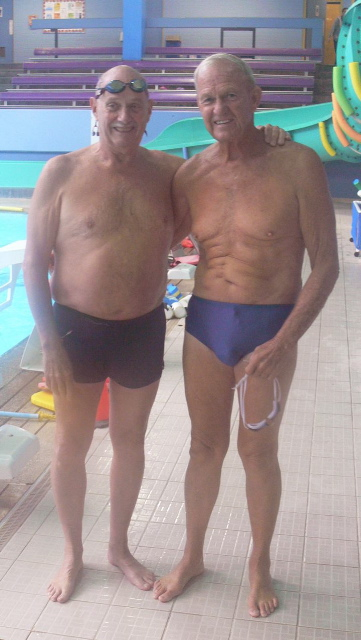
Reunited after 58 years
29 August, 2008
Jim Portelance and Graham Johnston reunited at the Victoria Crystal Pool in 2008 after 58 years. They met in 1950 at the British Empire Games in New Zealand where they competed against each other in the 1650 yard freestyle.
Portelance represented Canada and Johnston represented South Africa. Both lads barely made the finals, earning the last two qualifying spots but the race had a fairy tale ending with Johnston winning gold and Portelance silver. Portelance, 76, is a semi-retired doctor living in the West Shore of Victoria and swims three times a week with the Victoria Crystal Silver Streaks, a masters swim club with an average age of 70.
Johnston, 77, a retired heavy equipment sales representative, now lives and swims in Houston, Texas and is a member of MOST (Masters of South Texas) and last month competed in the US Masters Long Course Nationals in Portland, Oregon. Johnston, accompanied by his wife and athletic supporter, Janis, is visiting and swimming with friends, Dan and Jackie Eddy of Sooke, who he met at the World Huntsman Senior Games in Utah.
Portelance and Johnston swam a 2400m hour long practice session with the Silver Steaks, teasing each other with their speed and skill. They will next meet this coming October at the Huntsman World Seniors Games in St. George, Utah, competing in the 75 to 79 age group. http://www.msabc.ca/css/jim.htm

Still in the Swim of Things
At one time, OU had a very competitive swimming program, thanks in large part to a Graham Johnston-led gang of transplanted South Africans. By Jay C. Upchurch
In the early 1950s, an era when American colleges and universities were populated overwhelmingly by homegrown students, Norman, Oklahoma, seemed an unlikely place for exotic transplants. But that perception quickly changed when South African swimmer Graham Johnston arrived in August 1952, followed over the next six months by six of his countrymen. Soon everyone associated with collegiate swimming became familiar with the University of Oklahoma’s dynamic South African connection.
Almost overnight, OU was in the vanguard of Southwest schools integrating foreign student-athletes into their programs. The willingness of University President George Lynn Cross and Athletics Director Bud Wilkinson to internationalize the OU campus was revolutionary thinking at the time.
A half-century later -- 20 years after the University discontinued its intercollegiate swimming program -- Johnston still has in his possession the letter from OU’s swim coach, Joe Glander, promising an athletic scholarship that included room and board, books, tuition and $15 a month. That letter resulted from several conversations between Glander and a young South African chap named Neville Price, a champion broad jumper who had joined Coach John Jacobs’ Sooner track and field squad after meeting Jacobs’ son at a 1951 competition.
Price and Johnston had become fast friends at the 1950 (British Empire) Commonwealth Games in Auckland, New Zealand, and the two continued to correspond after Price wound up in the United States via a track scholarship to OU.
“Bud Wilkinson and Joe Glander were like surrogate fathers to me, even though Joe left OU the year after I arrived,” says Johnston. “I didn’t see or talk to my parents for almost five years, so I looked up to those men quite a bit. I can’t say enough about the way Bud Wilkinson treated me.”
While Johnston was largely responsible for the influx of South African swimmers, he credits Price with providing the initial bridge to OU.
“Neville was really the one who helped open the door for myself and a lot of other South African athletes, including the great group of guys who ended up at Oklahoma,” says Johnston, mentally dusting off a few memories that have been stored away for over 50 years. “If he hadn’t gotten to know Jake Jacobs’ son, none of us would probably have ever set foot in Oklahoma.”
Actually, Johnston did not have to dig too deep to recall the period he describes as “the turning point in my life.” In May 2005, he returned to Norman with Janis, his wife of 49 years, for her 50-year graduation celebration. On that visit, the 74-year-old native of Bloemfontein, South Africa, reconnected with fellow countrymen and former OU teammates Lin Meiring, Peter Duncan, and Mel van Helsdingen.
“We told stories and laughed straight through for two solid hours,” says Johnston. “It was so wonderful to see my old friends and reminisce about the good old days.”
“Good” does not properly define the success OU’s swim team enjoyed during the decade of the ’50s. The Sooners won the Big Seven Conference swimming title five of six years from 1952 to 1957, thanks in part to the talented South African contingent.
“We never lost a conference meet during my time at OU. We won the Big Seven title every year I was there, and that says a lot about the quality of talent we had at the time,” recalls Johnston, who specialized in the free style 220-, 440- and 1,650-yard events.
Johnston earned All-America honors three times during his collegiate career and established several school records, as well as a handful of national swimming marks prior to his departure. From 1952-56, the quick-finned, blond Sooner was among the world’s most dominant amateur swimmers.
The lone blemish on his résumé occurred during the 1954 Big Seven Championships, as the Sooners were seemingly en route to another conference swimming crown. News that Johnston had mistakenly enrolled in only 11 hours of class credits for that particular semester came to light, thus making him a part-time student and ineligible to compete in varsity sports events.
As a result, the Sooners were stripped of the title, and two national records Johnston set during the meet were disallowed.
“That’s certainly not something I’m proud of. Neglect on my part -- not knowing you needed to carry 12 hours to compete -- cost the team something special,” says Johnston. “That would be the only thing I would change about my time at OU.”
It was a rare miscalculation on Johnston’s part, according to Meiring, who says his longtime friend’s hard work and attention to detail were always second to none.
“Graham has always been a fierce competitor. Early on, he dedicated himself to be as good as he could be, and the truth is, he’s an amazing swimmer,” offers Meiring, 71, a retired ear, nose and throat surgeon in Oklahoma City.
Another former teammate, Bob Leonardt, offers a similar opinion.
“It was interesting to see how Graham kind of opened the door for the rest of the South African swimmers, but the thing I remember most about him was his dedication as an athlete. His convictions ran very deep,” Leonardt notes.
So focused was Johnston that he twice transformed himself into an Olympian, competing for South Africa at the 1952 Helsinki Games. Four years later, he again qualified for the South African team but chose not to compete in Melbourne because the dates—November 22 through December 8, 1956—conflicted with his final semester at OU. Instead, Johnston completed his schoolwork and graduated with a business degree.
He married college sweetheart Janis Thompson that same December.
“Everything was going great in my life. I was graduating, I was married to a great gal, and we had our entire lives ahead of us,” says Johnston.
The Johnstons moved to South Africa in 1957 when Graham accepted employment in the mining business. It did not take long, however, for him to become disenchanted with his new job, and he began to look for opportunities back in the United States.
“It wasn’t a great situation. South Africa was going through a considerable amount of turmoil. We really didn’t want to start a family and not know what was going to happen next, so we moved to Chicago in 1958,” explains Johnston, who used every penny the family had to get back to America.
“We were in Chicago for a while when I got a job offer with a construction company in Oklahoma City. I took the job, but before we could move, a better offer came in from a similar company in Houston. We went to Houston, and it turned out to be a great decision.”
Johnston’s passion for the pool continued over the next 15 years, but he basically was retired from competitive swimming during that period. In 1973 at the age of 41, he rediscovered the sport and dived back in headfirst. Since then, Johnston has traveled the world competing in both open-water swim events and regular meets. He has set dozens of world records in various age divisions and is showing no signs of slowing down.
In July, Johnston surged to five gold medals and three silvers at the 2005 World Masters in Canada. One of his greatest aspirations is to become the oldest person to swim the English Channel, a feat he will attempt next year when he turns 75.
“We are all in absolute awe of Graham’s drive to swim after all of these years. In all honesty, he has become world renowned for his performances,” says Meiring, also a member of South Africa’s ’52 and ’56 Olympic teams. “Graham is a really nice, uncomplicated man with a constitution of iron. That has carried him through and helped make him an amazing swimmer.”
At last count, 15 of Johnston’s world records still stand. When asked the secret to his success, he quickly points to his healthy lifestyle and the unending support he has received from his wife.
“It’s been an absolutely fantastic journey, from my time at OU through the last 50 or so years. I have an incredible wife and five wonderful children, and I’ve had the chance to pursue something I truly enjoy in life,” says Johnston, whose accomplishments were validated in 1998 when he was inducted into the International Swimming Hall of Fame in Ft. Lauderdale, Florida.
He continues to work out in the pool for several hours almost every day and has set a rigorous schedule for himself over the next year.
“Probably no one alive has swum farther than I have. That’s pretty amazing to think about,” laughs Johnston, who is retired from the construction business, but still coaches swimming in his spare time.
“But that doesn’t mean there aren’t still a lot of oceans to swim and records to break.”
Jay C. Upchurch is a regular contributor to Sooner Magazine. He also is editor-in-chief of a new independent publication devoted to OU sports, Sooner Spectator, and sports columnist for the Oklahoma Gazette.

Age Hasn't Stopped This Man From Swimming — And Winning
July 26, 2013More than 10,000 athletes are meeting in Cleveland for The National Senior Games. Adults older than 55 — and some older than 90 — are running track, riding bikes, playing basketball and competing in many of the sports you might see at the Summer Olympics. In fact there are a few who were Olympians themselves back in the day who say they find that competition is just as satisfying in their later years.
One of those is 82-year-old swimmer Graham Johnston. When he's not racing or getting ready to race, he's in the stands, checking out the other swimmers with an expert eye.
"See," he says, pointing at one competitor, "he took a breath on the turn. Shouldn't have done that." But when it's over, he applauds and shouts "Great race" to all the swimmers.
And Johnston knows a great race when he sees one. He's been swimming since the age of 2. "My father was a manager of a swimming pool," he explains. And there wasn't a lot else to do in the small South African town where he grew up.
Over the decades, Johnston has set world records in various age groups for older swimmers. He's in several national and international swimming halls of fame. Back in 1952 he represented South Africa in the Olympics. But as an Olympian, he describes himself as an "also-ran."
"Unfortunately, when I had to train for the Olympics, I didn't have much money and I couldn't eat very well," Johnston says. "And I probably only had one half-decent meal a day. And I think I had some malnourishment. I never got in the final. I missed the final by one position."
Johnston came to the United States on a swimming scholarship from the University of Oklahoma. That's where he met his wife, Janice. It was during their freshman year. Janice says, "He just didn't swim fast enough to get away."
She goes to every one of her husband's races. "I love being his cheerleader," she says. Or as her husband puts it: "She's my athletic supporter."
Not only is Janice Johnston at all of her husband's races; she's at every practice too. That's five or six trips to the pool each week, every week. Johnston used to train twice a day but hasn't for the past four years. "I find I'm too tired," he says.
That regimen began 40 years ago when he discovered Masters Swimming, which organizes competitions for adults. As with the Senior Games in Cleveland, competitors are grouped by age in five-year increments.
And more recently, Johnston has taken up open water swimming, making the trip across the Straits of Gibraltar and swimming from the Hawaiian island of Lanai to Maui. There was "a 20-foot tiger shark in Maui one year," says Johnston with bravado, "but it wasn't hungry."
Still, he knows that no amount of attitude, competition or rigorous training can defeat the toll of age.
"As your body ages, all your physical equipment deteriorates," he says. "I feel a lot older and I'm getting a lot slower, but so is everybody else."
He jokes that lot of his competition is already dead. "But I'm still here," he says with a chuckle.
Johnston still has living competition, and he joined them in the pool for the 200-meter freestyle. He holds the Senior Games record in this event for his age group. He didn't beat the record, but he beat the guy who came in after him by 41 seconds.
So Johnston got another gold medal. But he says medals have never motivated him. In fact, he's given pounds of them away to kids he's coached. He's in it for the camaraderie at the pool, he says, and the thrill of the race.
"That's what makes life exciting," he says. "You've got to get that adrenaline high."
And that's something that doesn't change for athletes, no matter what their age.
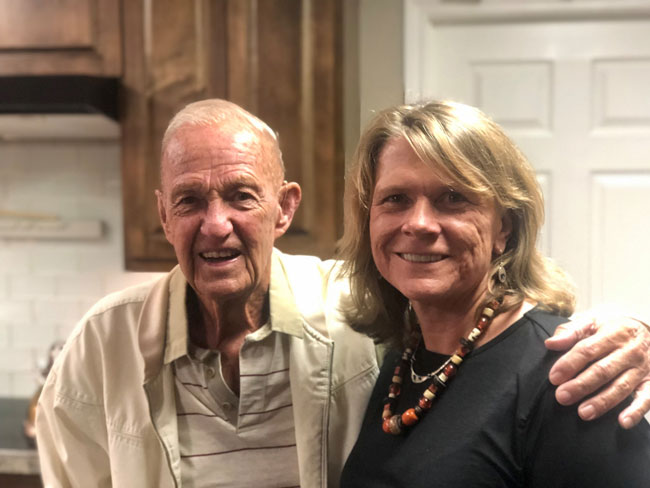
 Graham Johnston with Springbok swimmer Helena Pirowin Houston.
Graham Johnston with Springbok swimmer Helena Pirowin Houston.
86-year-old swimmers continue friendly rivalry at Huntsman World Senior Games
October 12, 2017 ST. GEORGE — Thursday morning, the second of three days of swimming competition at the Huntsman World Senior Games, two longtime friends once again battled each other in the water. Graham Johnston and Donald Baker, both 86 years old, have been friendly rivals for nearly 20 years.
Johnston edged Baker in the 100-yard individual medley Thursday morning at the Sand Hollow Aquatic Center, but both men said the camaraderie they share with each other and other swimmers is far more important than times or medals.
“It encourages older people to stay physically active until the day they die,” Johnston said of the Huntsman World Senior Games.
This is his 16th year of participation at the games. “You meet some really good people in swimming, people who are dedicated to good health,” agreed Baker, who has been a Huntsman World Senior Games participant for the past 23 years, all while battling multiple forms of cancer.
“Praise God, I’m still able to get in the water and swim a little bit,” Baker added. Baker’s wife Gini, 67, competed in the 200-yard freestyle race and a couple other events Thursday.
“I first came here when I was 50, and there was no records in this pool, so I got to set every record,” Gini Baker said. The Bakers reside in both Phoenix and San Diego.
Two years ago, Don Baker and Johnston successfully swam the 20-mile Catalina Channel in the open ocean off the coast of Southern California, taking about 12 hours and setting age-category records in the process.
Johnston is no stranger to the record books, having set more than 100 age-group world records spanning various distances. A South African native, Johnston swam for his home country on its 1952 Olympic team. Johnston and his wife Janice now live in Houston. Janice is her husband’s stalwart cheerleader on the sidelines, hollering “Go, Graham!” during every race.
The Bakers are each swimming nine events this year, while Johnston is competing in seven.
“The venue is such a good venue, and they do such a good job of organizing it,” Don Baker said. “It’s a real pleasure to come here.”
The Bakers and Johnston are but a few of the dozens of swimmers competing at this year’s Huntsman World Senior Games. The swim competition wraps up Friday with five more events at the Sand Hollow Aquatic Center in St. George, starting at 8 a.m.
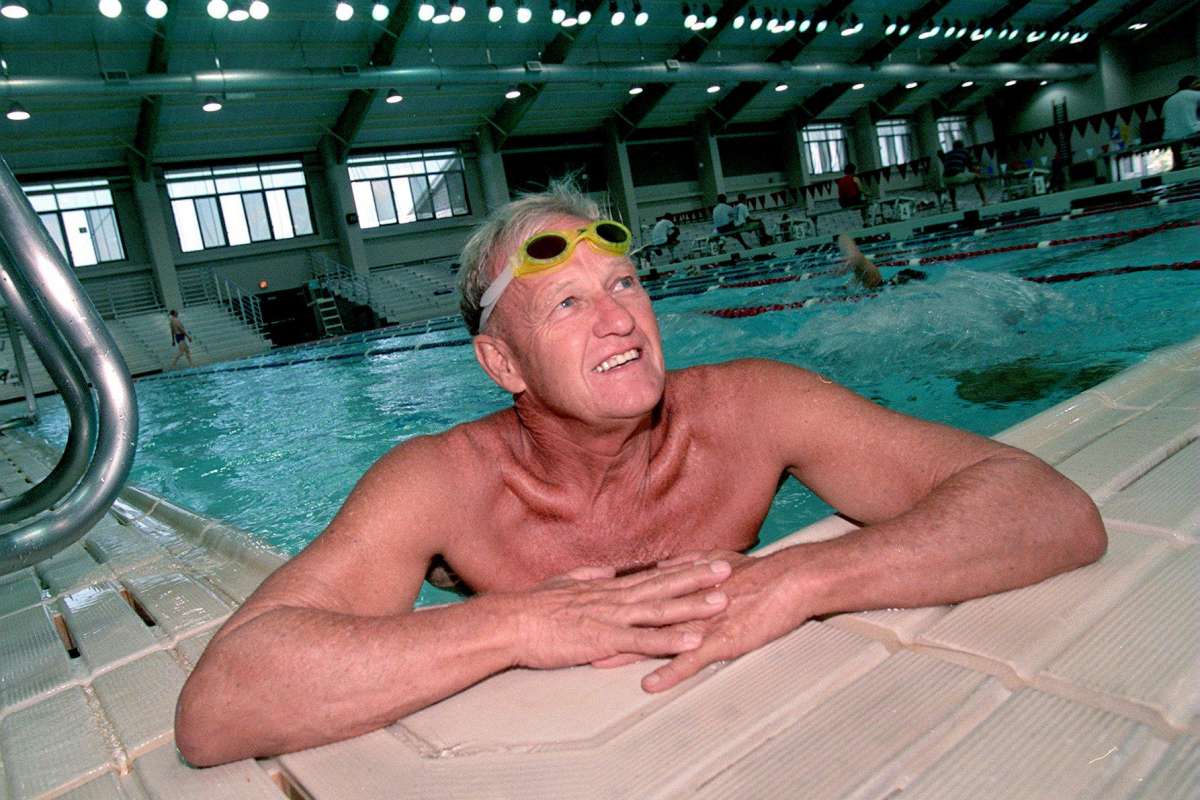
Swimmer Graham Johnston gets ready for events at a Palo Alto College swimming event on July 25, 1998.
Legendary Houston swimmer Graham Johnston dead at 88
Graham Johnston, a legendary swimmer who competed in the Olympics in 1952 and continued swimming competitively into his 80s, died Saturday morning of natural causes in Houston, his longtime home.
He was 88.
Friends and family said Johnston’s love of swimming was contagious.
“Our world revolved around swimming,” said Johnston’s daughter, Jenny Lord, who has fond childhood memories of her parents piling their children into a red Volkswagen convertible to go swimming at their local pool in Sharpstown, where she grew up.
During drives through the scenic Texas Hill Country, her father would often pull over whenever he spotted a swimming hole.
“He really helped other people to love the sport, because he had such a passion for it,” Lord said.
Johnston grew up in South Africa, where his father managed a swimming pool and encouraged his sons to swim as much as possible. Johnston was hooked.
In college, Johnston swam competitively at the University of Oklahoma, where he met his future wife, Janice. He competed in the 1952 Olympics in Helsinki but didn’t win any medals. After Johnston married Janice in 1955, he stopped swimming competitively until the 1970s, when the U.S. Masters Swimming Program was launched for older swimmers.
Johnston rediscovered the joy of swimming. And over the next four decades, he shared that joy with everyone he met in the tightly knit world of swimming, from longtime veterans he loved to compete against to newcomers who barely knew the breast stroke.
“He was just an absolutely brilliant swimmer,” said Helena Finley, a longtime family friend whose father used to race against Johnston. “He not only enjoyed it himself, but he brought the love of the sport to so many people.”
Even in his 60s, Johnston was swimming almost as fast as he did in his 20s, according to a 1998 Houston Chronicle profile.
“Swimming has been my life for so long,” Johnston said at the time. “I can’t picture ever doing anything else. I love the sport. As long as I am alive, I probably will be swimming.”
Over the years, Johnston trained for races by swimming two hours a day on a nearly daily basis at the Dad’s Club in Houston. By the age of 79, he had broken 81 records in Masters Swimming and was inducted in the International Masters Swimming Hall of Fame, according to the Chronicle’s archives.
He could swim fast in short races or swim for miles in open water — forgoing a wet suit no matter how cold the conditions. He almost swam across the English Channel, Lord said, but the rough waves made him sick.
There was more to Johnston than swimming, Lord said. Johnston was also a great father who doted on his five children.
“He just had unconditional love,” Lord said.
Houston Chronicle - John Tedesco
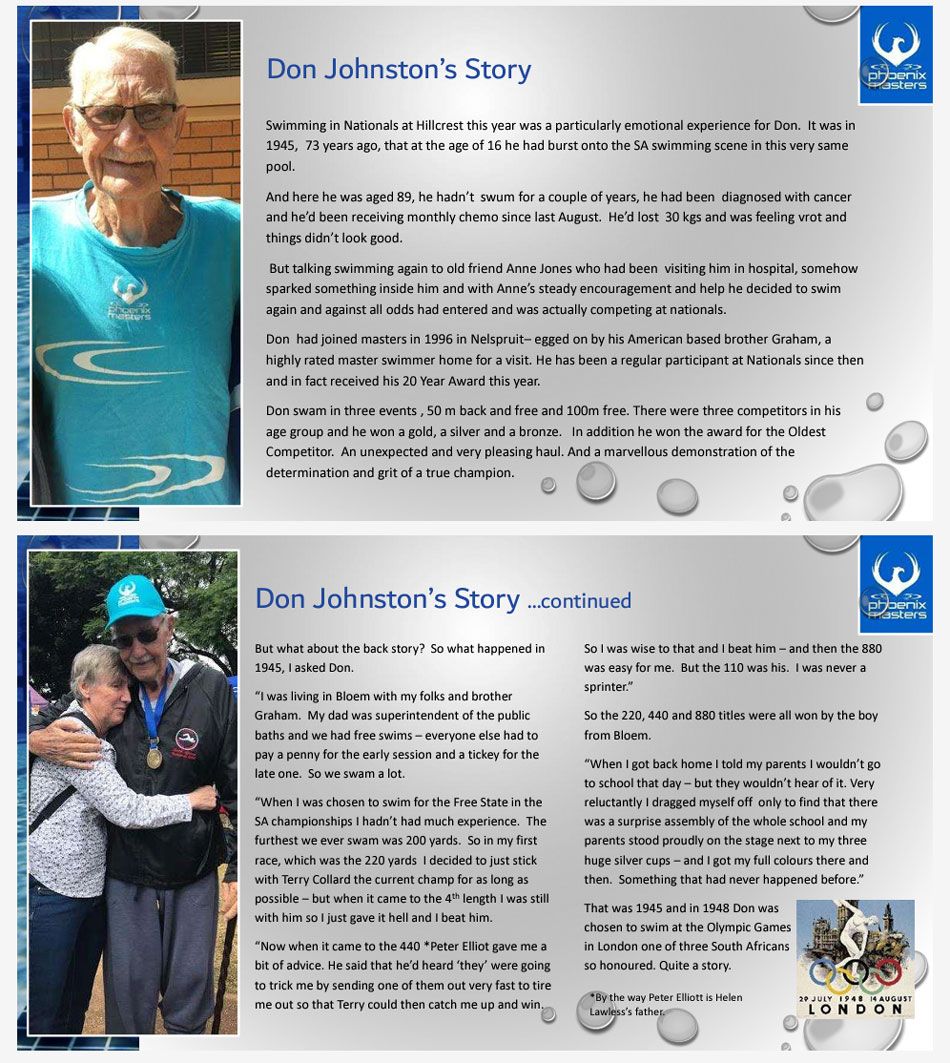
Olympian Donald Johnston

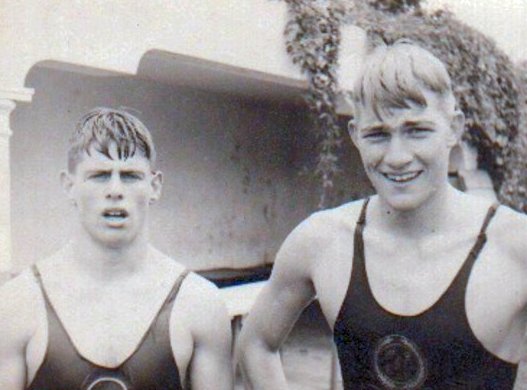
Donald Johnston (right) with SA champion Les Klenerman.
Don Johnston’s Story
Swimming in Nationals at Hillcrest this year was a particularly emotional experience for Don. It was in 1945, 73 years ago, that at the age of 16 he had burst onto the SA swimming scene in this very same pool.
And here he was aged 89, he hadn’t swum for a couple of years, he had been diagnosed with cancer and he’d been receiving monthly chemo since last August. He’d lost 30 kgs and was feeling vrot and things didn’t look good.
But talking swimming again to old friend Anne Jones who had been visiting him in hospital, somehow sparked something inside him and with Anne’s steady encouragement and help he decided to swim again and against all odds had entered and was actually competing at nationals.
Don had joined masters in 1996 in Nelspruit– egged on by his American based brother Graham, a highly rated master swimmer home for a visit. He has been a regular participant at Nationals since then and in fact received his 20 Year Award this year.
Don swam in three events, 50 m back and free and 100m free. There were three competitors in his age group and he won a gold, a silver and a bronze. In addition he won the award for the Oldest Competitor. An unexpected and very pleasing haul. And a marvellous demonstration of the determination and grit of a true champion.
But what about the back story? So what happened in 1945, I asked Don. “I was living in Bloem with my folks and brother Graham. My dad was superintendent of the public baths and we had free swims – everyone else had to pay a penny for the early session and a tickey for the late one. So we swam a lot.
“When I was chosen to swim for the Free State in the SA championships I hadn’t had much experience. The furthest we ever swam was 200 yards. So in my first race, which was the 220 yards I decided to just stick with Terry Collard the current champ for as long as possible – but when it came to the 4th length I was still with him so I just gave it hell and I beat him.
“Now when it came to the 440 Peter Elliot gave me a bit of advice. He said that he’d heard ‘they’ were going to trick me by sending one of them out very fast to tire me out so that Terry could then catch me up and win.
So I was wise to that and I beat him – and then the 880 was easy for me. But the 110 was his. I was never a sprinter.” So the 220, 440 and 880 titles were all won by the boy from Bloem.
“When I got back home I told my parents I wouldn’t go to school that day – but they wouldn’t hear of it. Very reluctantly I dragged myself off only to find that there was a surprise assembly of the whole school and my parents stood proudly on the stage next to my three huge silver cups – and I got my full colours there and then. Something that had never happened before.”
That was 1945 and in 1948 Don was chosen to swim at the Olympic Games in London one of three South Africans so honoured. Quite a story
